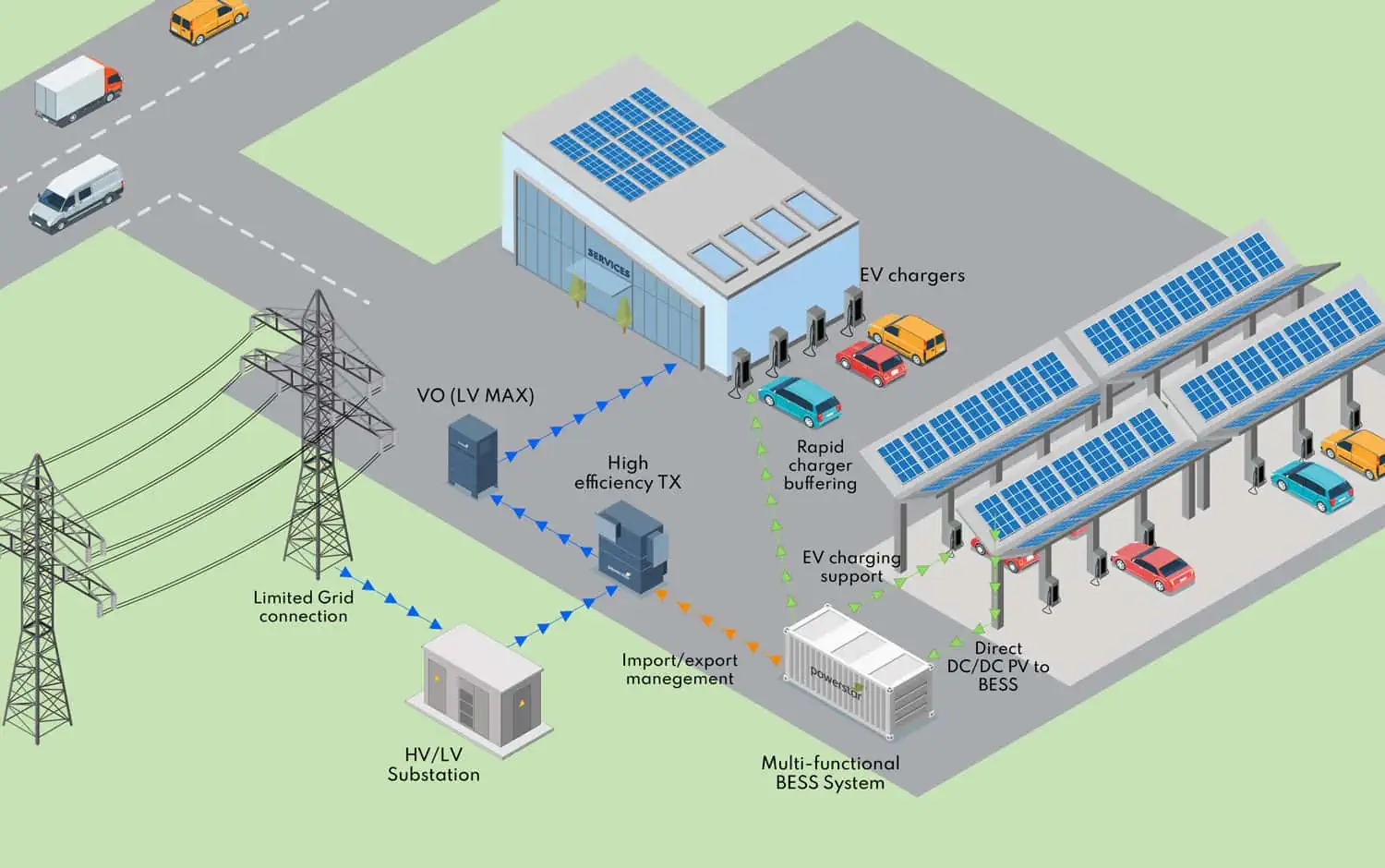Industrial Energy Storage: Key Use Cases and Implications Introduction
In today’s rapidly evolving energy landscape, industrial energy storage stands as a cornerstone for operational efficiency, sustainability, and economic viability. With the global shift towards renewable energy sources and the increasing demand for reliable power supply, the role of energy storage in industrial settings has become more crucial than ever. In this blog, we will explore the diverse use scenarios of industrial energy storage, delving into how these applications are transforming industries and paving the way for a more sustainable future.
Industrial Energy Storage Use Cases
1. Demand Response and Load Shifting
Industries often face peak demand charges, where electricity costs more during high-demand periods. Energy storage systems can store energy during off-peak hours when electricity is cheaper and release it during peak hours, reducing energy costs significantly.
2. Renewable Energy Integration
With the increasing adoption of renewable energy sources like solar and wind, energy storage plays a pivotal role in mitigating their intermittent nature. It ensures a steady supply of energy, even when the sun isn’t shining or the wind isn’t blowing.
3. Backup Power and Resilience
Energy storage systems provide a reliable backup power source, crucial for industries where power interruptions can lead to significant losses or safety risks. This is especially vital in critical facilities like hospitals and data centers.
4. Grid Services and Support
Industrial energy storage can offer services like frequency regulation and voltage support to the grid, enhancing grid stability and efficiency. This is increasingly important as grids become more reliant on variable renewable energy sources.
5. Process Optimization
In industries with energy-intensive processes, such as manufacturing or chemical production, energy storage can optimize energy usage, leading to more efficient operations and reduced costs.
6. Electric Vehicle Charging Stations
As the adoption of electric vehicles (EVs) grows, industrial sites with EV charging stations can use energy storage to manage the high power demands of charging, especially during peak hours.
Conclusion
Industrial energy storage is not just a tool for energy management; it’s a strategic asset that can drive sustainability, resilience, and cost-efficiency. As we continue to embrace renewable energy and seek solutions for a more sustainable future, the importance of energy storage in industrial applications will only grow. From ensuring uninterrupted power supply to optimizing renewable energy use, energy storage is a key player in the industrial sector’s journey towards a greener, more efficient future.
In upcoming sections, we’ll dive deeper into each of these use cases, exploring their benefits, challenges, and the technological advancements that are making them more accessible and effective. Stay tuned as we unfold the multifaceted role of industrial energy storage in shaping a sustainable industrial landscape.






